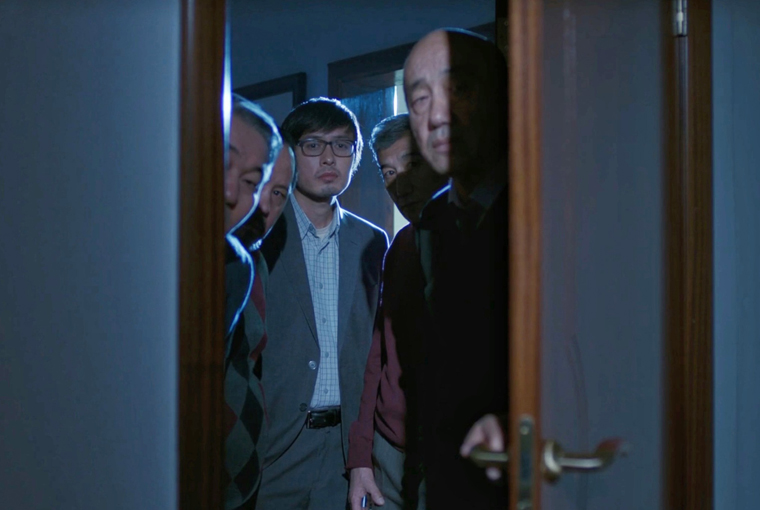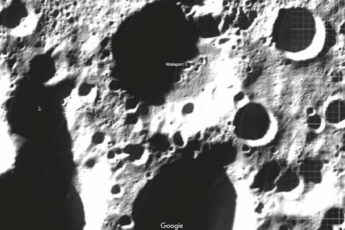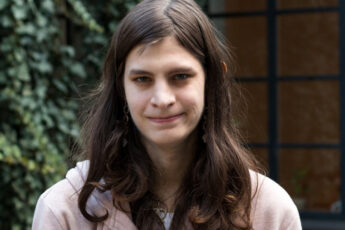
The question of how the cultural sector should position itself in the widening Russian-Ukrainian war has been a topic of intense debates. From the ban of Russian journalists at the Cannes film festival to the exclusion of Ukrainian documentary filmmaker Sergei Loznitsa from the Ukrainian Film Academy, cultural actors are increasingly scrutinized for their possible ties to and contacts with Russian operatives. Some of the decisions resulting from this rebranding of enemies and friends disproportionately serve some institutions and individuals more than it will hurt those truly guilty of representing the imperialistic politics of Putin. This climate of acute suspicion and generalized distrust has also affected cultural journalism and may result in heightened pressure to disclose sources of funding and professional affiliations.
A case in point is the Calvert Journal, a recently terminated online magazine that explored or, more precisely, promoted the contemporary cultures of the “New East”, comprising Eastern Europe, the Balkans, Russia, and Central Asia. Founded by Nonna Materkova, a Russian-born, London-based economist, the Calvert Journal was part of the Calvert 22 foundation, which was launched in May 2009 in Shoreditch, East London. The foundation boasted a fashionable gallery space and a café in addition to running the online magazine, which published glossy blog posts on a region that is stereotypically depicted as being bleak and neglected. Since its founding, the Calvert Journal had successfully enlarged its sphere of influence in the U.K., partnering with The Guardian and the Tate.
On February 28, 2022, four days after Russia’s unprovoked attack on Ukraine, though, an announcement by the editor-in-chief on the website read:
The Calvert Journal ceased publication until further notice. At a time when Russian acts of war are being committed in Ukraine, we cannot in good conscience continue our work covering culture and the arts like business as usual. We are against this war in Ukraine and call for its end.
A few weeks later, the announcement was changed to the following statement, signed by founder Nonna Materkova:
With many colleagues across the region, and with a recent slew of restrictive laws in Russia which target the media, we have ceased publication of The Calvert Journal to ensure our staff are protected. We hope to return once there’s greater clarity about the situation.
From these statements, readers are left to believe that moral conflicts —related to the issue of reporting on Russian culture in times of war — as well as safety concerns – presumably for Russian journalists – prompted the foundation to shut its doors and the journal to cease publication (the Calvert 22 foundation could not be reached for comment). While such steps may come off as laudable, they also appear somewhat disproportionate. After all, other magazines focused on Eastern European cultures such as Dekoder, Left East, New Eastern Europe or N-Ost continue to operate despite such potential concerns. Arguably, their expertise is more important than ever. The Pushkin House, which is London’s oldest Russian cultural center, and only a 15-minute walk away from the Calvert 22 foundation’s premises, remains open. (The Pushkin House has reacted to the war by organizing solidarity events to raise funds for creatives and charities in Ukraine.) Russian journalists and intellectuals based in the West, such as Masha Gessen or Yuri Slezkine, keep being published in spite of or, indeed, because of their Russian identity. Lastly, in what ways a magazine interested in culture largely from a lifestyle perspective should disturb or be disturbed by geopolitics is difficult to fathom. Ironically, in 2014, when Russia annexed Crimea, in an interview with The Guardian Materkova had argued contrarily that cultural exchange is most needed in times of crisis, stressing that “cultural relations become even more important in this situation. Politics is one thing but when people actually talk to each other, things are different […] I don’t think politics can cut all those creative links.”
Certainly the 2022 invasion of Ukraine strained cultural relations with Russia. Nevertheless, a more fitting explanation for the abrupt cease of operations at the Calvert 22 foundation may be related to the commercial influence on and ownership structure of the organization. In 2011, VTB Capital, the U.K.-based investment unit of VTB Bank, whose majority shareholder is the Russian government, announced a strategic partnership with the Calvert 22 foundation. VTB Capital’s parent company was among the first financial institutions targeted by UK sanctions this year, which Foreign Secretary Liz Truss announced on February 24, that is on the first day of the invasion. Alexei Kudrin, who was a member of Calvert 22’s Board of Trustees and a co-founder of The Calvert Journal, was Russia’s Minister of Finance until 2011 and served on the bank’s Board of Directors. Since 2016, Alexei Kudrin has been Deputy Chairman of the Economic Council under the Russian President. While Kudrin has not been blacklisted in the UK, Andrei Kostin, formerly in ‘diplomatic service’ at the USSR embassy in London and executive director of VTB, is among the blacklisted individuals in the U.K. alongside other VTB board members. On April 6, 2022, struggling to service its financial obligations, Judge Timothy Fancourt of the English High Court has declared the U.K. subsidiary of VTB insolvent.
Could it be that the Calvert Journal had lost its moral bearings not vis-à-vis its Russian journalists or subject of reporting, but with regards to the financial elite backing its operations? In 2011, when the partnership between the Calvert 22 foundation and VTB Capital started, Olga Podoinitsyna, Member of the Board at VTB Capital, commented that “our company plays an important role in strengthening ties between the Russian and British business communities and the partnership with Calvert 22 is a key part of VTB Capital’s soft power approach to changing perceptions of Russia.” The quote suggests that Calvert 22’s strategic partnership was directly serving the interests of Russian business elites, and, by extension, of VTB’s majority shareholder — the Russian government. In an op-ed, Podinitsyna elaborated that VTB’s soft power approach is also exemplified by RUSSIA CALLING!, a VTB-organized investment forum that is held in Moscow, London, and New York, and which aims to bring global business investors closer to Russia.
That the U.K. has been welcoming Russian oligarchs with “open arms” is a well-known and thorny issue. In a 2020 report on Russia by the “Intelligence and Security Committee of Parliament”, paragraph 50 is rather clear on the matter, where the presence of the Russian financial elite in ‘Londongrad’ is referred to as fulfilling the role of a ‘laundromat’. According to the report, the strategy for moneyed arrivistes in the U.K. lies in “extending patronage and building influence across a wide sphere of the British establishment – PR firms, charities, political interests, academia and cultural institutions were all willing beneficiaries of Russian money, contributing to a ‘reputation laundering’ process.” The report goes on to state that the “Russian influence in the UK is ‘the new normal’, and there are a lot of Russians with very close links to Putin who are well integrated into the UK business and social scene, and accepted because of their wealth.”
In a parliamentary debate on “Countering Russian Aggression and Tackling Illicit Finance” which took place on February 23rd 2022 and thus one day before Russia launched its full-scale invasion, the Russian report by the Intelligence and Security Committee was evoked on several occasions in the context of a motion to target Russia’s financial elite. The opaque finances behind the Calvert Journal and similar organizations point to the commercial influence, ownership, and reputation laundering processes in shaping cultural mediation and coverage. That it needed the start of a war for the U.K. government to act on such issues, and for the wider public to become aware of them, is at best an indication for the ease with which the vested interests of Russia’s financial elite can be concealed; at worse, it shows complicity with the nefarious interests of the Russian state. Needless to say, this is also true of other states’ governments and financial elites, including democratic ones.
Assessing the editorial independence of cultural journalism, and understanding how commercial influence and ownership structures serve business and political interests, may reshape the current cultural media landscape. The Calvert Journal is by far not the only media organization involved in dodgy funding structures. The ties of MIT’s media lab to the convicted sex-offender Jeffrey Epstein have tainted the image of one of the most prestigious institutions of the US. Such episodes reveal the complicated relationship between media platforms and their financial backers. In a situation where the financial future of journalism is shaky, the influence of donors, funders and philanthropists increases, inevitably posing the risk of media capture. Large-scale donors (the donations for the Calvert 22 foundation were £550.00k in 2021 and as high as £901.31k in 2017) usually want to do more than wade through grant applications or give their money to the same people year after year. Instead, they define priorities and goals, draft mission statements, and allocate financial resources to have an “impact”, in the case of the Calvert Journal, to exercise soft-power, as then-VTB representative Olga Podoinitsyna had put it.
The underlying problem of soft power in the funding of culture and media may, however, be deeper than keeping a stream of revenue clean of bad reputations. On a more fundamental level, foundations are unaccountable: they are administered by trustees who are chosen by existing trustees, not by the public, employees, or stakeholders. Foundations are essentially anti-democratic in this regard. One principle of the media is that they play an important role in our society’s systems of checks and balances, in part by looking closely at the mechanisms in which government, businesses, and other institutions are exerting influence on political and social structures. It is tragically ironic when the media landscape is unable to exercise this function by looking at itself. If there is a positive lesson to be learned here, then it is that it is no longer legitimate to justify or downplay “dirty money” by arguing that economic survival is at stake. Ultimately, a more demanding public is the most effective barrier against media capture and the only path to restoring media practices that are more aligned with public interests.
***
In this month’s issue, we continue publishing our Berlinale 2022 coverage. Antonis Lagarias saw Michael Borodin’s Convenience Store – a story of modern-day slavery and motherhood – as well as Darezhan Omirbayev’s Poet, a reflection on the role of poetry in contemporary Kazakh society. You can find an interview with Borodin in our Interviews section. Meanwhile, Alice Henaghan reports from the One World Documentary film festival with a review of Jan Gebert’s The Candidates, and an interview with Georgia Hejduková, one of two politicians portrayed in the film. Finally, Anna Doyle saw an experimental short by Mateja Zidarić that explores issues of mythology and space exploration.
We hope you enjoy our reads.
Konstanty Kuzma & Moritz Pfeifer
Editors




Leave a Comment